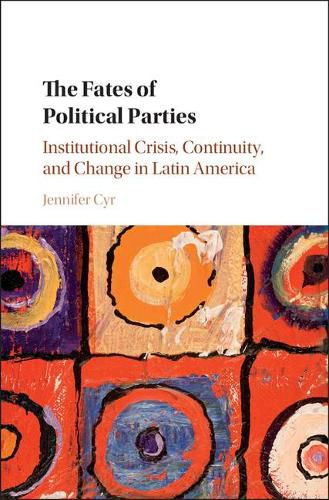Readings Newsletter
Become a Readings Member to make your shopping experience even easier.
Sign in or sign up for free!
You’re not far away from qualifying for FREE standard shipping within Australia
You’ve qualified for FREE standard shipping within Australia
The cart is loading…






Political parties in the developing world often face serious electoral crises; from one election to the next, parties can be decisively voted out of national office. What happens to a party that experiences this kind of voter rejection? The literature suggests it will disappear, leaving the party system vulnerable to the inexperience of new political actors. The Fates of Political Parties offers a more nuanced perspective: focusing on a number of individual Latin American countries as well as the region as a whole, it identifies considerable variation regarding how parties survive and even revive after an electoral crisis. The book revitalizes the study of parties as complex entities that rely on a potentially diverse set of resources to remain active in politics. It demonstrates that parties can be remarkably enduring institutions; surviving and reviving parties represent instances of institutional stability. Where they endure, those parties can sustain competition and strengthen the democratic regime.
$9.00 standard shipping within Australia
FREE standard shipping within Australia for orders over $100.00
Express & International shipping calculated at checkout
Political parties in the developing world often face serious electoral crises; from one election to the next, parties can be decisively voted out of national office. What happens to a party that experiences this kind of voter rejection? The literature suggests it will disappear, leaving the party system vulnerable to the inexperience of new political actors. The Fates of Political Parties offers a more nuanced perspective: focusing on a number of individual Latin American countries as well as the region as a whole, it identifies considerable variation regarding how parties survive and even revive after an electoral crisis. The book revitalizes the study of parties as complex entities that rely on a potentially diverse set of resources to remain active in politics. It demonstrates that parties can be remarkably enduring institutions; surviving and reviving parties represent instances of institutional stability. Where they endure, those parties can sustain competition and strengthen the democratic regime.